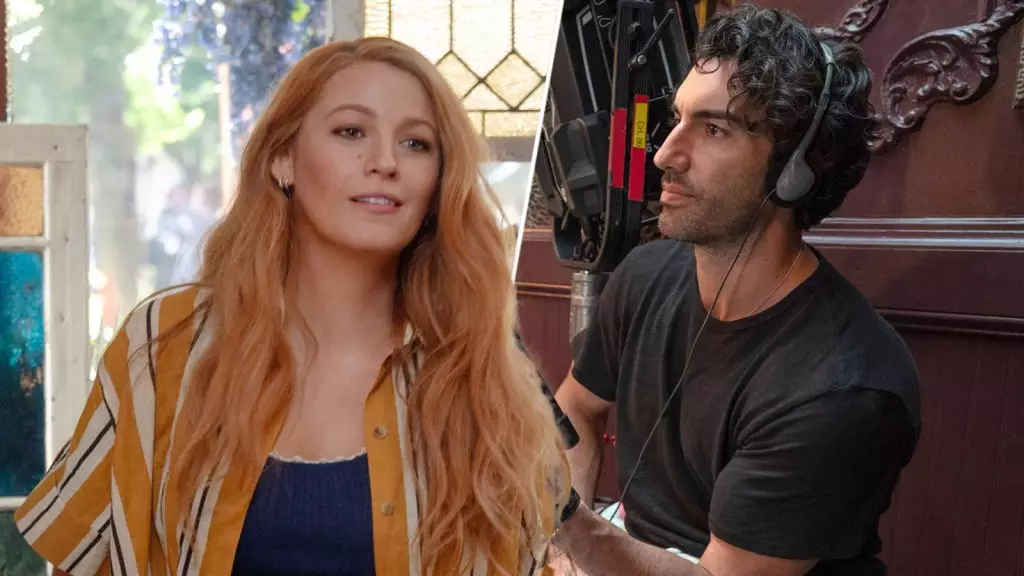The entertainment industry has always been rife with stories of personal conflict, but few resonate with the weight of Blake Lively’s recent lawsuit against her co-star and director, Justin Baldoni. This legal confrontation is more than just a standard workplace dispute; it’s a complex narrative involving allegations of sexual harassment, retaliatory campaigns, and the profound impact on Lively’s career.
Context of the Allegations
Lively’s lawsuit, filed with the California Civil Rights Department, paints a disturbing picture of the environment on the set of “It Ends With Us,” an adaptation of Colleen Hoover’s popular novel. The claim suggests that Baldoni, alongside his production company Wayfarer Studios, orchestrated a meticulous public relations campaign designed to undermine Lively after she voiced her concerns regarding inappropriate behavior. Lively cites an all-hands meeting she attended, which included her husband Ryan Reynolds, where she confronted Baldoni’s alleged misconduct.
The nature of these allegations raises critical questions. For instance, is the film industry doing enough to protect individuals from harassment, and can significant power dynamics create an unsafe working environment? By alleging that Baldoni improvised overtly sexual scenes and openly discussed his porn addiction, Lively’s claims illustrate a shocking disregard for professional boundaries. Such behavior not only undermines the safety of the set but also damages the reputations of those brave enough to call it out.
The fallout from this alleged misconduct has had immediate repercussions for Lively. According to her lawsuit, being embroiled in such controversy forced her to cancel major public appearances, including a prominent role as the host for the Season 50 premiere of “Saturday Night Live.” Here lies a critical examination of how allegations—true or false—can reshape a public figure’s career trajectory. The cancellation of her engagements is a direct consequence of the toxic atmosphere she claims to have experienced, forcing her to weigh the risks of public appearances and potential media scrutiny against her professional ambitions.
Professional setbacks instigated by workplace harassment underline a larger issue within the entertainment industry: how reputations can be damaged not just by the actions of others but by the mere act of speaking out against them. Lively’s withdrawal from events signals both personal distress and societal implications—how voicing discomfort can lead to isolation rather than support.
In response to the lawsuit, Baldoni’s attorney has categorically denied the allegations, labeling them “shameful” and accusing Lively of attempting to salvage her reputation post-allegations. This pushback adds another layer of complexity to the narrative, highlighting how legal disputes can spiral into public battles over character and credibility. Baldoni’s claim suggests Lively’s public statements and behavior during promotional activities for “It Ends With Us” are at the core of her diminishing reputation. The interplay between public perception and legal strategy emphasizes the adversarial nature inherent in such high-stakes disputes.
Furthermore, Baldoni’s recent drop from agency WME post-filing points to the swift repercussions that can occur in Hollywood following such serious allegations. The entertainment industry often operates in a delicate ecosystem, where reputation and public opinion can dictate career longevity. The support from author Colleen Hoover for Lively further illustrates shifting loyalties and the potential for public figures to stand in solidarity against troubling industry practices.
This entire episode serves as a poignant reminder of the need for reform within the entertainment industry. Allegations of misconduct must be met with not only proper investigation but also systemic changes that prioritize the safety and voices of individuals. The story of Blake Lively intricately weaves together themes of power dynamics, professional integrity, and the protection of personal dignity.
As the legal proceedings unfold, it remains to be seen how this conflict will shape both Lively’s and Baldoni’s futures. What is certain, however, is that this case will shine a light on the larger issues of harassment and retaliation that continue to plague workplaces across all sectors, calling for a reevaluation of the structures that enable such behavior to persist. The hope is that through this deeply troubling saga, the industry will finally embrace a cultural shift towards greater accountability and respect.

